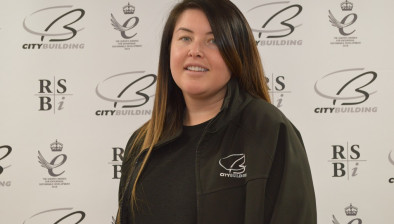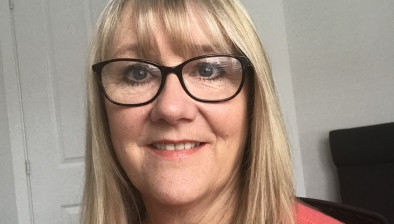Primary concern: Building foundations for a career in construction for women
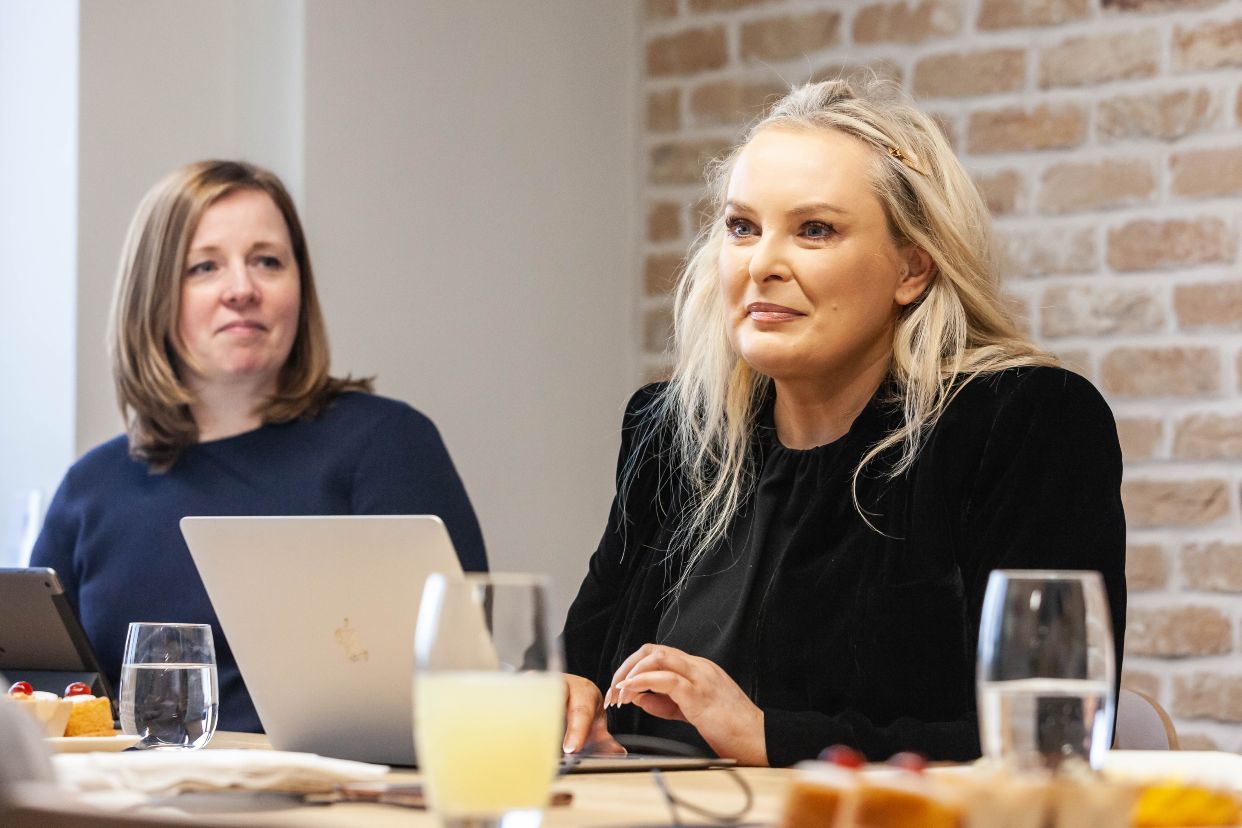
The summit was hosted by broadcaster Heather Suttie
To mark International Women’s Day today, UK construction firm Thomas & Adamson is calling for education providers to introduce construction into the curriculum as early as primary school - in a whole new approach to addressing sector gender equality.
With just 14% of UK construction jobs held by women, the firm staged an industry summit to assess the state of the sector - and develop solutions to help encourage greater female recruitment and representation.
Consisting of leading figures from a variety of organisations and education providers, key outcomes identified to tackle the industry’s gender inequality include:
- Primary school intervention - careers advice at primary school level when children start to abandon ‘fantasy’ careers AND before adopting gender-based stereotypes.
- Gen Z and sustainability - highlighting to the more environmentally conscious younger generation the key role the construction sector can play in fighting climate change.
- Talk the Talk – change how we communicate to tech-savvy future generations, utilising social media streams like TikTok to show benefits, fun hi-tech elements of construction and different opportunities possible.
- Lift the Lid – showcase strong role models for women to boost representation: fictional characters like Kylie Minogue as mechanic Charlene in the 80s TV soap Neighbours are cited as a huge inspiration for Gen X girls who have gone on to work in similar sectors today.
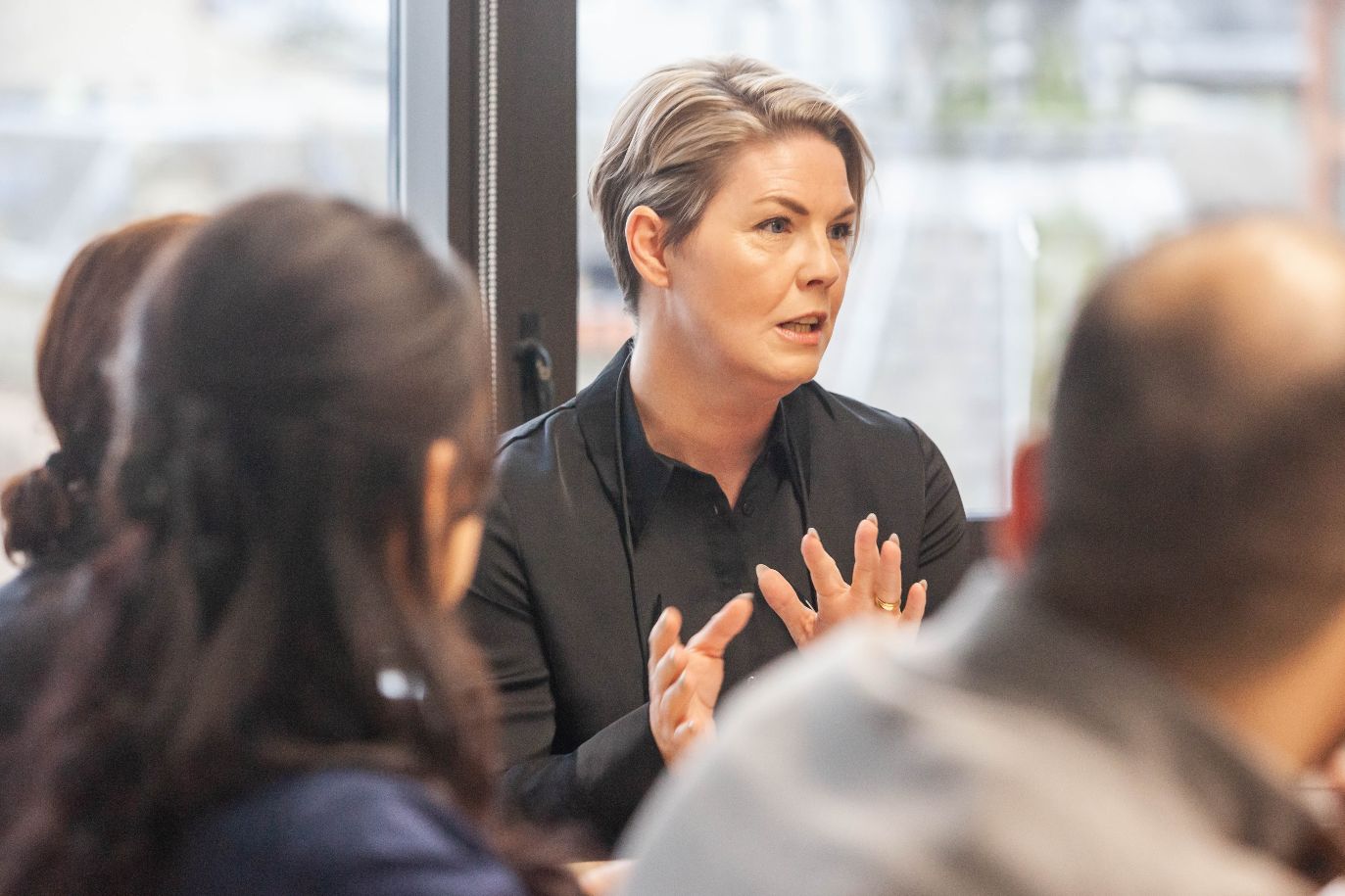
Susan Cardwell, marketing & business development manager at Redpath Construction
Hosted by broadcaster Heather Suttie and attended by representatives from DSSR Consulting Engineers, Civic Engineers, Redpath Construction, Glasgow Caledonian University and Construction Industry Training Board (CITB), ‘Educating the Educators’ was another key discussion point - ensuring staff at primary and secondary school level are fully informed not just about career options, but how well suited the industry is for women to aspire to.
With an industry-wide skills gap shortage currently affecting the sector, it was agreed a key boost in recruitment could lie with explaining what different jobs within the sector are. And that means training and educating teachers and careers advisers to help more female pupils consider courses and career options.
Heather Holbrook, Thomas & Adamson partner, said: “Awareness is hugely important at grassroots level, particularly before young people go to high school and start thinking about selecting subjects.
“I was recently talking to a Primary 7 class about different roles in the sector and all they knew about were careers such as joiners and architects. They had never heard of a quantity surveyor or project manager, and how subjects such as maths can lead to successful careers in this space. It was great to be able to tell them just how many opportunities there are.”

Heather Holbrook, Thomas & Adamson partner
Holbrook also highlighted the attraction of construction careers to many young people – once they had been made aware of them, adding: “When young people are at high school, some aren’t interested or able to enter full-time academia, and they often don’t understand there are avenues into the industry such as apprenticeships and part time degrees while getting hands-on work experience. That’s an eye-opener for some of them - that they can earn money and study at the same time.
“We all know there’s a massive skills gap shortage right now, so there’s no better time to be talking about the various routes to employment and raising awareness of construction as a viable career path for all genders and backgrounds.”
Olivia Bibb, graduate quantity surveyor at Thomas & Adamson, agreed, describing her experience studying to be a QS: “It was very male-dominated at university, with just a handful of girls, who were mixed between PM and QS students. After this I had a five-year placement with another company, working exclusively with male colleagues.
“Since joining Thomas & Adamson I’ve been delighted to see lots more women throughout the business, and in senior positions. It’s very important to me to be able to work with these role models so early in my career. I have a five-year-old daughter and feel that more women in senior roles will understand the challenges I face, and I appreciate that support.”
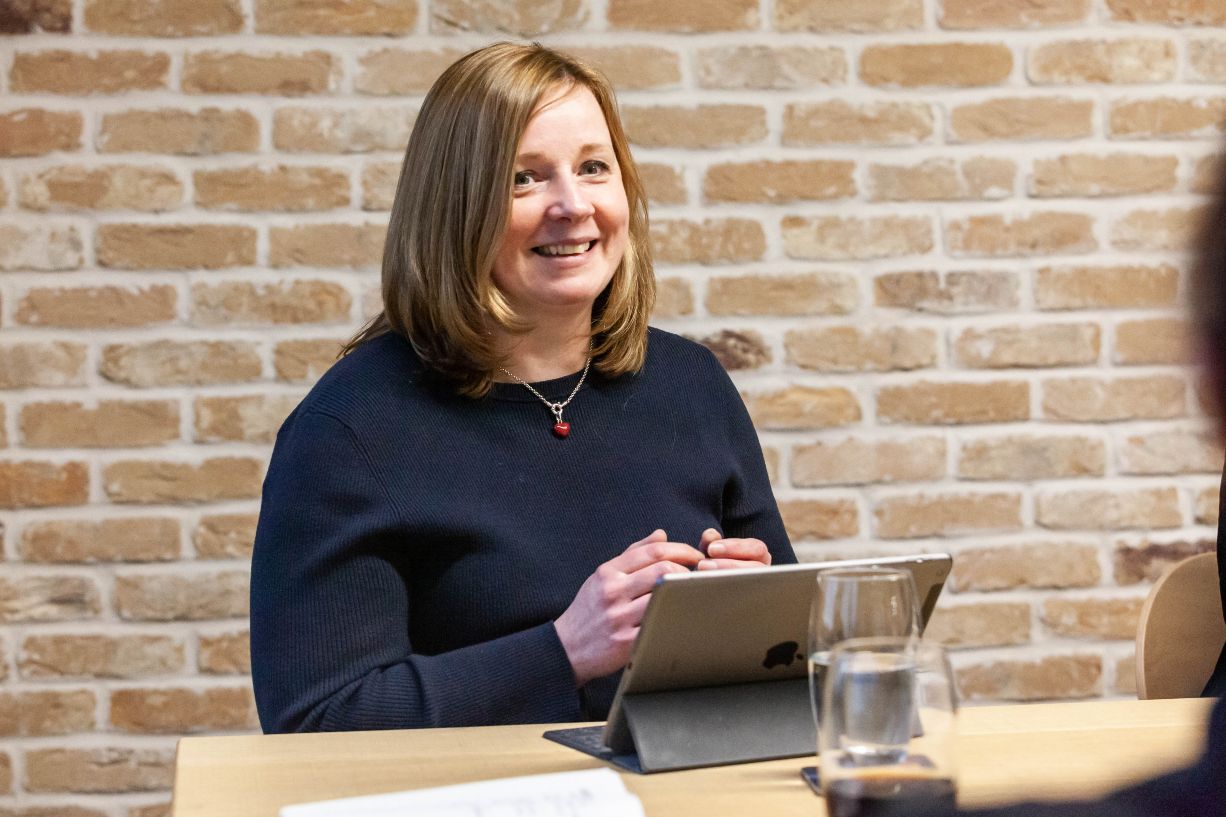
Fiona Williamson, regional director at DSSR Consulting Engineers
When asked by SCN whether it is more important to increase the percentage of women joining the industry at all levels or to specifically target female representation in executive teams when looking to reduce the gender pay gap that exists within construction, Fiona Williamson, regional director at DSSR, said: “It is my view that we need to increase the percentage of women joining the industry at all levels (including career change), supporting them through all stage of their careers to reach the level where they are better represented in executive teams. To achieve equality at the top there needs to be equality at all levels.
Heather Holbrook agreed that all levels need to be targeted. “Historically its been a male dominated industry but more females are coming into the industry now than many years ago,” she replied.
Craig Turner, associate director at Civic Engineers, added: “I think the priority is to get women into the industry at all levels. Getting a better balance of graduates and apprentices in now will help push more balanced executive teams in the future which should help reduce the wage gap.”
SCN also pointed to recent CITB research which found that the ‘macho culture’ of construction is typically a perception rather than reality and when women join the sector, they tend to view it as welcoming, open and diverse. Fiona Williamson agreed that the perpetuation of this myth is to the detriment of construction, adding: “Allowing this perception to continue is a significant barrier to encouraging women into the industry.”
“Its definitely a perception,” added Heather Holbrook. “We need to encourage children at school level that its open to all genders and woman can be just as successful.”
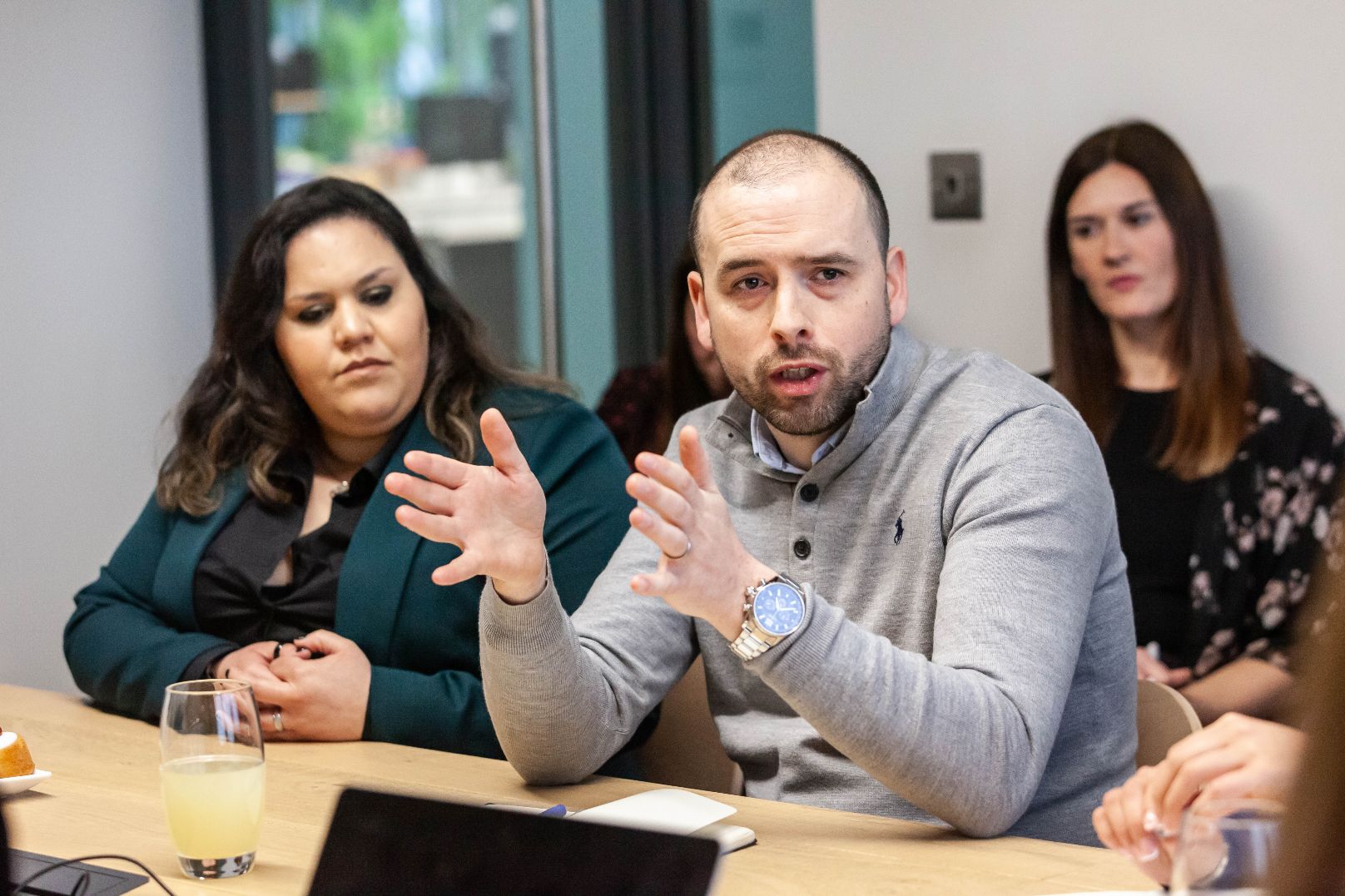
Stephanie Craig, Scottish customer engagement manager at CITB, and Craig Turner, associate director at Civic Engineers
For Craig Turner, the macho culture still exists but is in the minority. He said: “It will take a generation to get rid of this but to keep the momentum the industry has made on this over the past few years we all need to call out inappropriate and ‘macho’ behaviour and not be discouraged from being an active bystander.”
The tangible benefits of the industry including the diversity of projects and career opportunities leading to excellent earning potential were discussed, including a key selling point in the huge part the sector plays in carbon reduction and fighting climate change. Decisions made during projects can have a massive influence on sustainability, an issue of increasing importance to young ‘Gen Z’ recruits.
Another finding was that the industry as a whole could take steps to become more parent and family friendly, in terms of part-time and flexible working considerations – a good way to set a positive example to young people considering following in parents’ footsteps.
The message, however, from the panel was that the sector has never been more welcoming to women.

Grace Mair, regional director at Thomas & Adamson
Stephanie Craig, Scottish customer engagement manager of the CITB, said: “There is an awareness exercise that needs to take place to bust the ‘macho culture’ perception myth wide open. You can throw numbers, facts and figures at people to say there’s X and Y number of women in construction – but until they see those women, they may not believe it.
“A lot of women still think it’s a man’s job so we need to overcome these archaic thoughts and show a different side of construction - the real side. We are seeing a more open and inclusive work environment where there is mutual respect for the job that is being done - despite the gender.”
While both gender gap and the wider skills gap need more work, Thomas & Adamson’s Heather Holbrook, recently promoted to partner with the firm, offered hope: “I’ve seen a considerable change over the last ten to 15 years.
“It’s no longer about whether someone is male or female. It’s about your ability, experience and if you’re doing the job well. There are some females in our business that are paid more than their male counterparts because they’ve got the skills and experience.
“However, company culture is key - it must be set from the top down to make that transformational change.”
The summit was also attended by Thomas & Adamson’s associate director Lynsay Turnbull and building surveyor Debi Stark as well as Siobhan Morrison, programme leader for BSc Quantity Surveying at Glasgow Caledonian University.


















